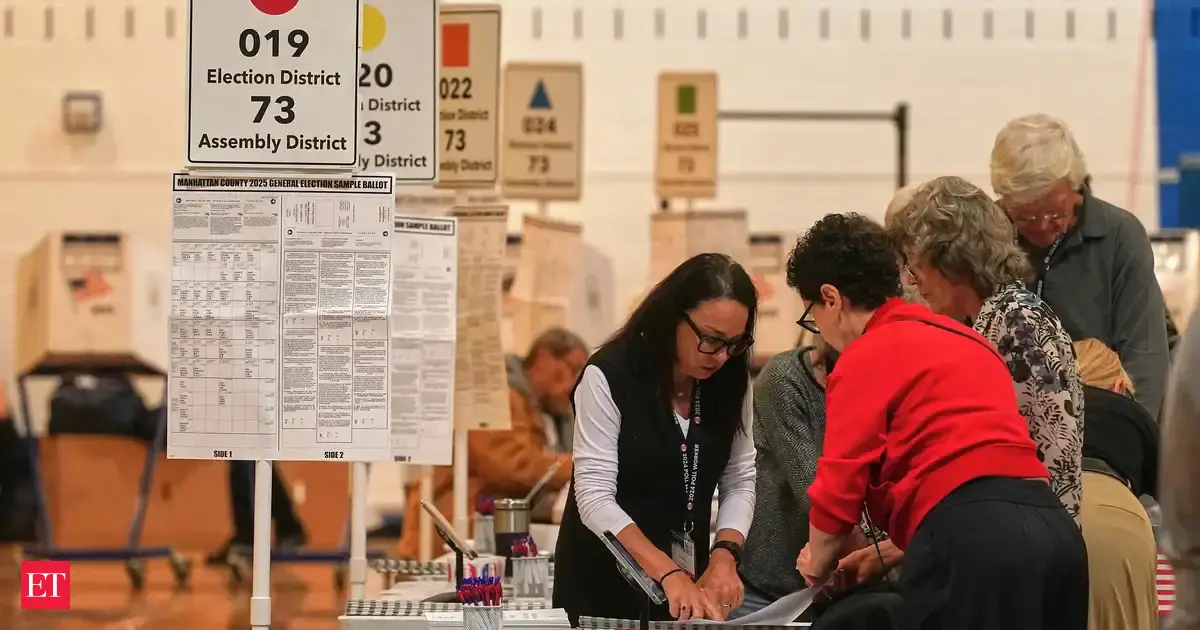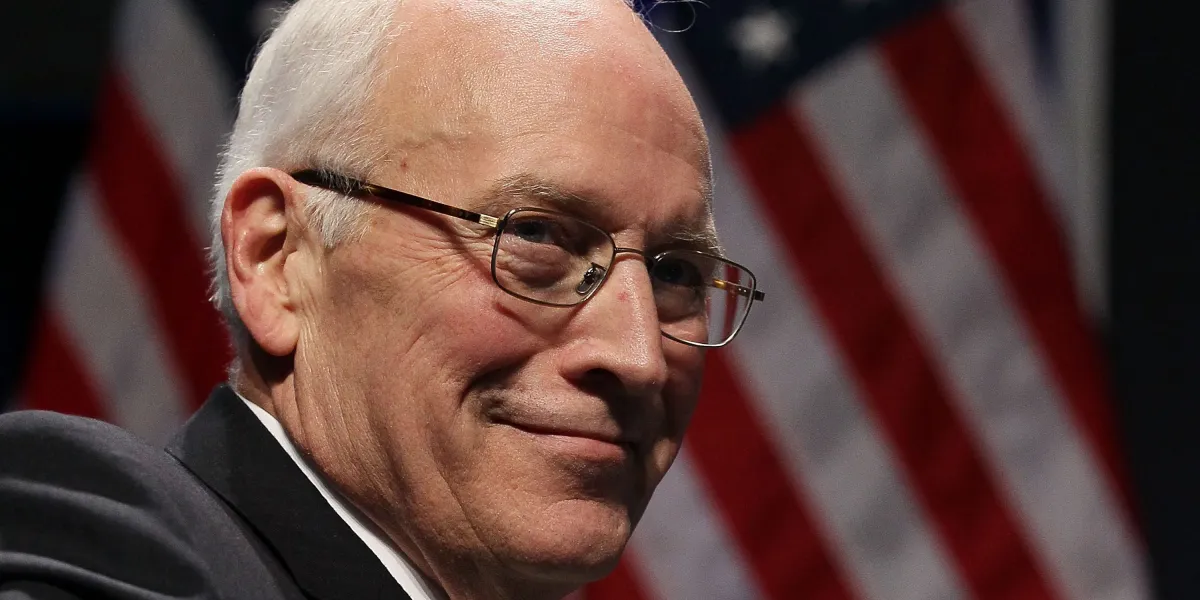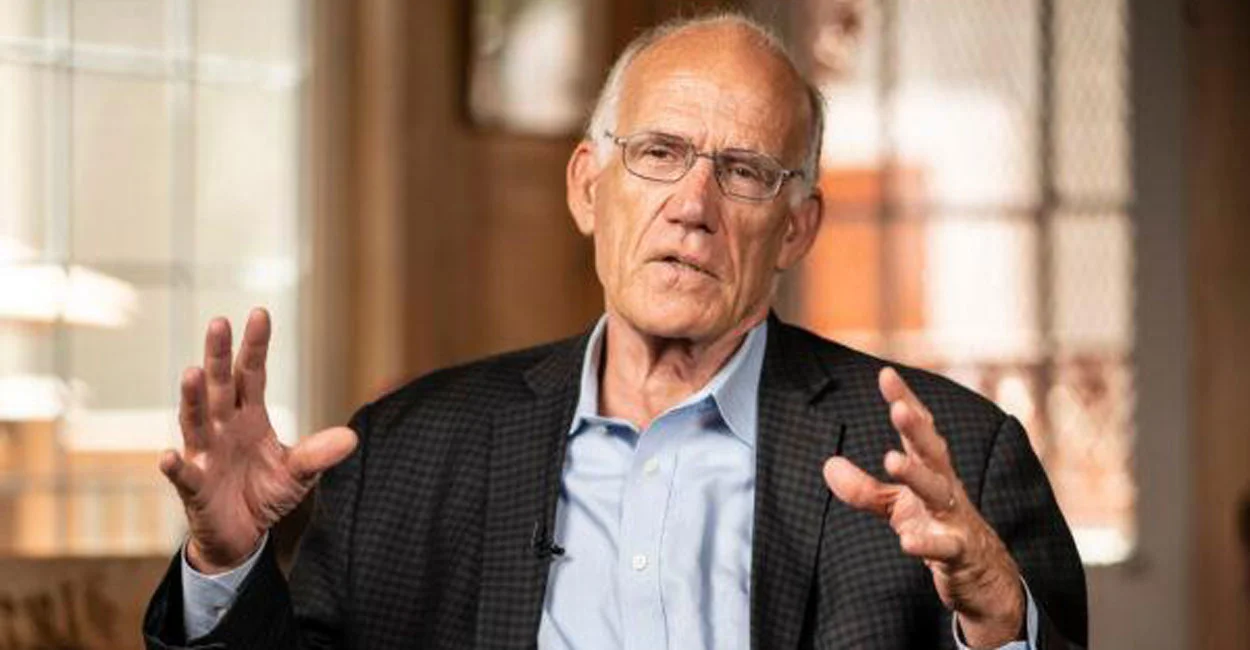Copyright Cable News Network

A version of this story appeared in CNN’s What Matters newsletter. To get it in your inbox, sign up for free here. Off-year elections gave Democrats some hope this week. The party swept statewide elections in admittedly blue states and saw signs of a rebuke of President Donald Trump and a resurgence for Democrats after a year in the political wilderness. They also, with a ballot measure in California and a strong majority in Virginia’s House of Delegates, began the process of redrawing congressional lines that could give them a better chance of regaining the House majority in midterm elections one year from now. Voters in New York City, meanwhile, elected as mayor Zohran Mamdani, a democratic socialist who quoted Eugene Debs in his victory speech. It’s a marker Republicans will try to apply to the entire Democratic party. I talked to CNN’s Washington Bureau Chief David Chalian for his thoughts on what the election means right now for Trump and Democrats, and what it means heading into the pivotal midterms. Our conversation, edited for length and style, is below. What makes this a definitive rebuke of Trump? WOLF: Democrats won up and down the ballot, but these are all local elections in blue states. Why can we describe this as a definitive rebuke of President Donald Trump? CHALIAN: There’s no doubt these elections played out on blue turf. There’s also no doubt that these Democrats overperformed on that blue turf from what Harris did just last year, when Trump had a very successful election. So you look at why. You can look in the exit polls. We asked voters in Virginia and New Jersey if Trump was a factor in their minds in this election, and for roughly half he wasn’t. But for those that said Trump was a factor, 2 to 1, he was a factor of opposition. But there’s also the geography and the demography. You look at some of the groups where, just a year ago, Trump had made real inroads. Whether it’s young men, specifically young men of color, or you look at some of his narrowing of deficits with independent voters. That all was wiped away. One of the questions going in was, OK, can Republican candidates not named Trump, now that he is in office and not running this year, can they maintain or extend those gains? And the answer was they couldn’t. And then look at the geography. Yes, New Jersey is a blue state. It’s a blue state Donald Trump lost by just 6 points last year after losing it by a much greater margin four years prior, to Joe Biden. How did he narrow that margin of defeat last year? One way was he flipped five counties in the state from blue to red between ‘20 and ‘24. Well, Mikie Sherrill flipped those counties back to blue in her gubernatorial race. Donald Trump still has the ability to turn Democrats out (to vote against him), but when he’s not on the ballot it seems he has less of an ability to drive that kind of passionate turnout on the Republican side. What was surprising about Democrats’ wins? WOLF: One of the reasons the level of Democrats’ victories has taken people off guard is that pre-election polling, particularly in New Jersey, suggested things would be a little bit closer than they ultimately were. Does that suggest there’s a bug in the polling system? Chalian: You raised the best example, because I think of all the elections last night … the biggest surprise of the night was Mikie Sherrill’s (double-digit) margin over Jack Ciattarelli. Her margin of victory was much more substantial than I had anticipated, given the gains we saw Trump make there last year, and the fact that just four years ago, Ciattarelli, against Gov. Phil Murphy, made it a 3-point race. But I think it also could just be that Democrats were fired up and turned out yesterday in this Trump 2.0 era. Do Democrats have to choose between moderates and socialists? WOLF: What do you make of the idea that Democrats have to choose one of these two paths — between the democratic socialist mayor and the pragmatist governors? It strikes me that two suburban mom governors and a young mayor of color — that actually is the Democratic coalition in recent years, right? CHALIAN: I don’t believe it is a choice for the Democratic Party, because the only way for Democrats to be successful nationally is for all of these pieces to be a part of it. There were two very distinct kinds of candidate profiles in Sherrill and Spanberger on one side of the equation, and Mamdani on the other. They’re also running in different places. The center versus the left is a bit of a false equation. What the Mamdani victory does sort of expose and bring to the fore is an intraparty conversation about how we’re going to see that divide that you’re talking about play out in primaries next year. Go look at places like the Michigan Senate Democratic primary or the Massachusetts Senate Democratic primary that is still forming. You can look at the Maine Senate Democratic primary that is forming. Within the primary equation, there’s going to be an intraparty discussion about what animates Democratic voters. I do think there are going to be more Mamdani versus Cuomo kinds of primaries as the Democratic Party figures out where its gravitational pull is inside the party. What I think Democrats will have to think about is if all the Mamdanis of the world emerge from those primaries, do you hit some snags like Republicans did when tea party candidates back in the day would emerge in some places that could not win a general election? I think that that will become a conversation. Affordability remains the key issue for voters. Here’s what not to do about it WOLF: If there’s a through line from the Mamdani, Spanberger and Sherrill acceptance speeches, it’s the affordability issue. You’ve brought that up twice. It is the political issue of the moment. It was also the political issue of a year ago. It’s also something politicians don’t necessarily control. How can they address it? CHALIAN: Here’s what not to do: Don’t do what Joe Biden did, which was pretend everything was rosy because some economic indicators in the data suggest that it is moving the right direction, if people aren’t actually feeling that. Because then you seem totally disconnected from reality. Don’t do what Donald Trump is doing and basically just try to put up a smokescreen over concerns around the economic indicators and just tell people that prices are lower when they’re not. People aren’t experiencing that. You can’t deny the reality of what people are feeling. What Mamdani, what Spanberger, what Sherrill tapped into was the reality that people were feeling. Now it’s going to be on them, from a governing perspective, to see what levers they can pull, from a policy enactment position, to actually have an impact on that. Politically, the lesson learned over the last year from both Biden and Trump versus what we saw with these successful Democrats last night is you’ve got to acknowledge and speak to the reality that people are feeling economically in somewhat of an authentic way. Can Democrats catch Republicans on gerrymandering? WOLF: The California proposition election was a direct rebuke of Trump, because it gives California Democrats the ability to redraw congressional lines until the next census. In Virginia, Democrats are going to have a large House of Delegates majority that’s likely to allow them to redraw congressional lines. Democrats want to neutralize these seats that Republicans have tried to draw themselves in red states. What’s going to be the lasting impact of this? CHALIAN: You’re going to have to ask me that question a year from now, because I don’t know what the House results will be next year. But I do know two things out of that California ballot initiative. One… Democrats are only three seats away from the (US House of Representatives) majority. So now, by adding nine seats with mid-decade redistricting in Missouri, North Carolina, Texas and Ohio, Republicans have been able to take that number from three and make the hill to climb for Democrats 12 seats they (would) need now. Given what we saw last night, given the president’s standing right now, I’m not suggesting 12 is out of reach for the Democrats. But with the big victory in California last night, that (needed) gain number drops down to seven. So that was a very successful tactical move to put the House majority still within their grasp. The other thing it did, of course, was put Gavin Newsom, who clearly has his eyes on a 2028 presidential run, in a very successful light for Democrats… and just show fight to Democrats, which is something we know Democrats have been yearning to see from their leaders. Did Mamdani lean too hard into socialism in his speech? WOLF: Were you surprised at how Mamdani, in his acceptance speech, leaned into the socialism aspect of his politics? Because it plays into the Republican knock on him, but it also rewards his supporters. That’s what they believe. CHALIAN: If you watched the victory speeches occur in real time, sequentially throughout the night, as they moved up the East Coast – Spanberger’s victory speech in Virginia was all about her political pragmatism, and she really sounded like such a centrist and convener for everyone, representing a politics that doesn’t match what our politics have become in America. Obviously she had a huge victory, so she has a claim to do that. Then you get to New Jersey, and Mikie Sherrill’s speech had a lot of that, because that’s also how she ran, as a centrist to bring people together. But she also had quite a bit, perhaps a bit more than I anticipated, of the challenging Trump and “No Kings” and rule of law and democracy piece that she combined there, which may speak to the partisan makeup and demographics of New Jersey and how that’s different from Virginia. By the time we got up to New York City, Mamdani gave this fiery speech that was combative to Trump, and you are right to note, is like red meat for the folks that brought him to the dance and got him elected mayor. All three of them did the, “I’m going to be mayor or governor for all, whether you voted for me or not,” and they hit those notes. Mamdani was very clear that he was not turning a page now that he’s been elected. He had said in interviews before the election that he’s aware of his age. He’s aware that he doesn’t have all the experience and all the answers, and he’s going to build a team — that that was not in the speech last night. It was much more a full-throated dedication to the principles, the ideology, the policies that that he ran on, and a real direct challenge to President Trump. You’ve got three slightly different flavors in those victory speeches last night that really speak to the unique nature of each of them. And I will say, yes, Donald Trump’s mission is to take the Mamdani win and the Mamdani speech and paint with the broadest possible brush that that is the whole Democratic Party. I just don’t think, if you look at Spanberger and Sherrill, that meets with the reality of the results. Newsom notches a resistance victory WOLF: You forgot the last victory speech, which happened after midnight, East Coast time, which was Gavin Newsom. It sounded more like a kickoff to a 2028 presidential campaign. CHALIAN: Did you think it did? I thought he was trying to be so focused on 2026 and the midterms, given the redistricting measure that he was — I don’t know. I thought his interview appearances in the buildup to Tuesday were a lot more 2028-sounding. And he went out there last night, and I thought really tried to make sure that people like you and me didn’t walk away and say, “Oh, he only cares about running for president,” which, of course, we know he’s considering. But it was a pure political and partisan speech, there’s no doubt about that. It wasn’t about governing going forward; it was about beating back this Republican push to change the rules of the game mid decade and to try and win back the House of Representatives. Should the Democrats win the house, should Hakeem Jeffries become speaker a year from January, Gavin Newsom wants to be seen as somebody critically responsible for that success. When will Republicans start to turn away from Trump, technically a lame duck WOLF: I don’t think that we can expect that Donald Trump will change the way he’s governing or acting as president as a result of this. But what will other Republicans do? Will these results drive a wedge between him and the legislators he needs, or will they continue to follow him? CHALIAN: I’m dubious. I think we’ve been asking this question for 10 years. Is this now the thing where Republicans are going to start peeling away from Donald Trump? It is very hard to do that, because Donald Trump owns the party. It’s in his image and so it is very hard for me to imagine that all these Republicans who need to get through their primaries next year as they seek reelection in ‘26 will do anything to really distance themselves from Donald Trump. This will be a more robust conversation on the other side of the 2026 midterms. If Republicans take as much of a beating a year from now as they took last night electorally in these off-year contests, and they do so in far more purple or sometimes even reddish areas of the country, which was not where these elections last night took place, then I think you are going to see perhaps an intraparty Republican conversation about the path forward post-Trump in a more robust fashion than we will see throughout the entirety of 2026 leading up to the midterms. WOLF: I would push back and say the one difference between last night and the previous 10 years or so is that (now) with every passing day, Trump’s power wanes in some way. He’s closer to the end of the Trump era. Like it or not, depending on what your politics are, it’s coming, and it’s going to come faster than you think.



